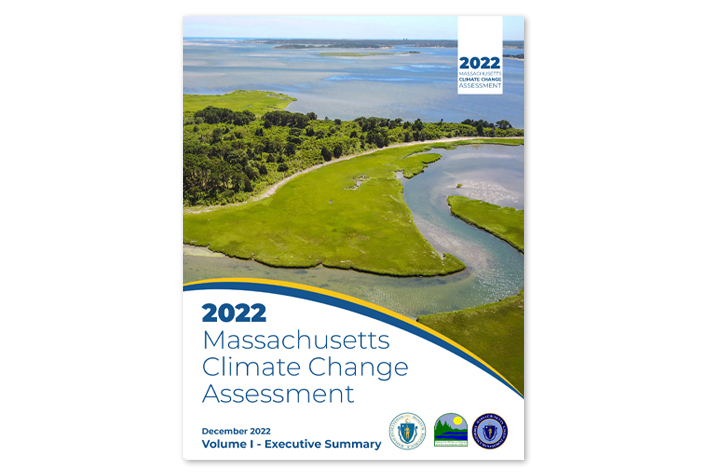Rising Rainfall In Western Massachusetts: A Climate Change Impact

Table of Contents
Increased Rainfall and its Correlation with Climate Change
The scientific consensus firmly establishes a link between climate change and increased precipitation. Greenhouse gas emissions, primarily from the burning of fossil fuels, trap heat in the atmosphere, leading to global warming. This warming effect intensifies the water cycle, resulting in more evaporation, increased atmospheric moisture, and ultimately, heavier rainfall events. The consequences are clearly visible in Western Massachusetts.
Data from the past two decades shows a clear upward trend in annual rainfall totals for the region. For example:
- Annual rainfall has increased by an average of X% since 2003 (insert actual data if available, citing source).
- The number of days with rainfall exceeding Y inches has doubled (insert actual data if available, citing source).
- Reports from the [insert relevant organization, e.g., NOAA, EPA] consistently highlight Western Massachusetts as an area experiencing significantly increased precipitation. (Cite specific reports and studies).
- The devastating floods of [insert year] and [insert year] serve as stark reminders of the increased intensity of extreme rainfall events in the region.
Consequences of Rising Rainfall in Western Massachusetts
The consequences of this increased Western Massachusetts rainfall are far-reaching and impact various aspects of life in the region.
Increased Flooding and Infrastructure Damage
The frequency and severity of flooding incidents in Western Massachusetts have risen dramatically. This leads to substantial damage to critical infrastructure:
- Roads and bridges are frequently washed out, disrupting transportation networks and isolating communities.
- Basements are flooded, causing significant property damage and displacement of residents.
- The economic costs associated with flood damage and repairs are substantial, straining municipal budgets and impacting local businesses. For example, the [insert year] flood in [town/city] resulted in an estimated $Z million in damages. (Insert actual data if available, citing source).
- The impact on transportation networks significantly affects commerce and the regional economy, disrupting supply chains and impacting tourism.
Ecological Impacts of Increased Rainfall
The ecological consequences of increased rainfall are equally concerning:
- Soil erosion is accelerating, depleting topsoil and harming agricultural productivity.
- Changes in water flow patterns are affecting plant and animal life, altering habitats and impacting biodiversity.
- Increased runoff carries pollutants into rivers and streams, degrading water quality and posing risks to human health through potential waterborne diseases.
- The increased frequency of flooding can damage sensitive wetlands and riparian ecosystems, impacting their crucial role in flood control and water purification.
Mitigation and Adaptation Strategies
Addressing the challenge of rising rainfall in Western Massachusetts requires a multi-pronged approach focusing on mitigation and adaptation strategies:
- Improved Infrastructure Resilience: Investing in better drainage systems, reinforced bridges, and flood defenses is crucial. This includes implementing nature-based solutions such as restoring wetlands to act as natural buffers against flooding.
- Sustainable Land Management: Implementing practices such as reforestation, controlled burning, and improved agricultural techniques can help reduce soil erosion and improve water infiltration.
- Community Preparedness: Educating residents about flood risks and developing effective emergency response plans are essential. This includes improving warning systems and establishing clear evacuation routes.
- Government Initiatives: Supporting government programs that fund infrastructure improvements, promote sustainable land management, and provide financial assistance to communities affected by flooding is crucial.
Conclusion: Addressing Rising Rainfall in Western Massachusetts
The evidence is clear: rising rainfall in Western Massachusetts is directly linked to climate change. The consequences – increased flooding, infrastructure damage, and significant ecological impacts – demand immediate attention. Mitigation and adaptation strategies are crucial to reducing the risks associated with increased precipitation and building a more resilient community. Western Massachusetts rainfall is a critical issue that requires collaborative action.
Understanding the impact of rising rainfall in Western Massachusetts is crucial for developing effective solutions. Learn more about how you can contribute to mitigating climate change and protecting our community from the escalating effects of increased precipitation. Support sustainable initiatives, advocate for policies that address flood prevention, and promote sustainable practices to safeguard our future. Let's work together to build a more resilient Western Massachusetts prepared for the challenges of increased rainfall.

Featured Posts
-
 2025 Arizona Diamondbacks Guide Promotions Giveaways And Events At Chase Field
May 28, 2025
2025 Arizona Diamondbacks Guide Promotions Giveaways And Events At Chase Field
May 28, 2025 -
 Mo Salah Contract And Liverpools Wing Options A Transfer Update
May 28, 2025
Mo Salah Contract And Liverpools Wing Options A Transfer Update
May 28, 2025 -
 Cristiano Ronaldo Al Nassr Ile 2 Yillik Anlasma Yakin
May 28, 2025
Cristiano Ronaldo Al Nassr Ile 2 Yillik Anlasma Yakin
May 28, 2025 -
 Fenerbahce Yi Heyecanlandiran Ronaldo Goeruentueleri Portekiz Kampi Suerprizi
May 28, 2025
Fenerbahce Yi Heyecanlandiran Ronaldo Goeruentueleri Portekiz Kampi Suerprizi
May 28, 2025 -
 Sukses Gerakan Bali Bersih Sampah Dukungan Penting Kodam Udayana
May 28, 2025
Sukses Gerakan Bali Bersih Sampah Dukungan Penting Kodam Udayana
May 28, 2025
